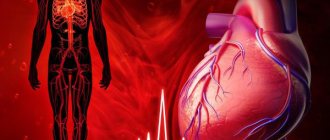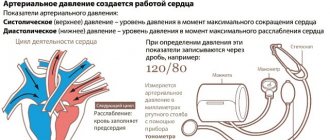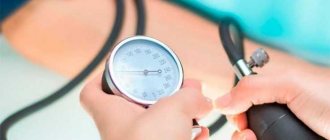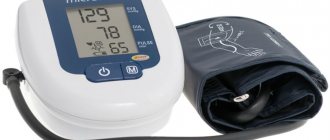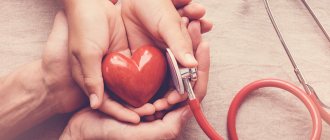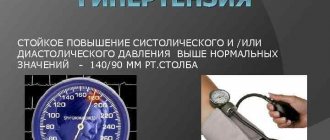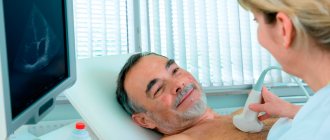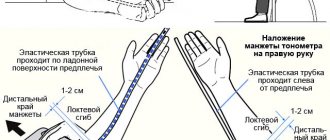Sinus rhythm and sinus tachycardia
Normally, the heart rhythm is set from the sinus node, so the sinus rhythm of the heart is the norm. Sinus tachycardia is a rapid heart rate (more than 90 beats per minute), set, as expected, from the sinus node. Sinus tachycardia in children is determined by other indicators of heart rate - according to the age norm, since the normal heart rate in children is higher than in adults.
Palpitations - a feeling of rapid or increased heartbeat. Often combined with tachycardia. Palpitations are a subjective symptom. Some people periodically feel even normal heartbeats, while others may not feel serious rhythm disturbances. Therefore, the feeling of heartbeat itself is not a sign of heart disease.
Increased heart rate is a normal reaction of the body to physical activity and stress, which is felt as palpitations and tachycardia. As a rule, this is sinus tachycardia, which occurs as a result of complex regulatory mechanisms of the cardiovascular system and, above all, an increase in the sympathetic influence on the cardiac pacemaker - the sinus node. The increased sinus rhythm of the heart allows the tissues to be supplied with oxygen and nutrients more actively, since during physical activity energy needs increase significantly. Sinus tachycardia of the heart after rest goes away on its own and does not cause discomfort.
Only in combination with other symptoms can a heartbeat indicate deviations from the norm. The symptoms that accompany palpitations depend on the disease of which they are a manifestation.
Tachycardia due to high blood pressure: what is dangerous and what to do?
With high blood pressure, tachycardia can be observed - an increase in heart rate of more than 90 beats per minute. Olga Kononova, a methodologist at the Regional Center for Medical Prevention, spoke about the causes and possible consequences of this condition.
Various factors can provoke tachycardia with high blood pressure. These include increased body temperature, stress, physical activity, dehydration, hormonal imbalance, adverse weather conditions, and heart disease.
The combination of high blood pressure and increased heart rate is extremely dangerous for your health. Due to the destruction of red blood cells and the activation of the blood clotting process, thromboembolism can develop: a blood clot can block an artery and cause the death of the patient.
Also, if tachycardia is observed frequently, the immune system is suppressed due to metabolic disorders. In addition, the consequences of tachycardia in combination with high blood pressure can be the development of coronary heart disease and heart attack, fainting and, as a result, injury.
The prolonged course of such conditions leads to cardiogenic shock with a sharp drop in blood pressure with further death and sudden cardiac arrest.
Alarming symptoms include: palpitations, blurred vision, pounding headaches, dizziness, chest pressure, and pain radiating to the arms, back, and stomach area. In addition, dangerous manifestations include heaviness in the legs, weakness, drowsiness, disturbances in general condition, fainting, shortness of breath, numbness of the limbs and fingers.
In a condition of tachycardia in combination with high blood pressure, self-administration of drugs to lower the heart rate is not recommended, as this can lead to various consequences.
If the pulse is at the level of 90 - 120 beats per minute, a doctor's consultation is required.
However, it is important to know: if the pulse is over 120 beats per minute, you must immediately call an ambulance, especially if this condition lasts for more than two hours!
Before the ambulance team arrives, it is important to exclude any motor activity, take a sitting position, try to relax and calm down. But it is impossible to take a lying position in this state, since the blood circulation will be uneven and the risk of developing pulmonary edema will increase.
Even and slow breathing for 10 minutes, holding your breath as you exhale (5 seconds for each element of the cycle) can help. This will help not only lower your heart rate, but also your blood pressure. You can also take one sedative tablet based on herbal ingredients - motherwort or valerian, but not in alcohol form.
CAUSES OF PALACE AND TACHYCARDIA
Palpitations and tachycardia occur with the following diseases:
- arrhythmias (disturbances in cardiac rhythm),
- endocarditis, myocarditis,
- myocardial dystrophy, cardiosclerosis,
- arterial hypertension,
- heart defects,
- anemia,
- neurosis,
- vegetative-vascular dystonia,
- endocrine diseases (thyrotoxicosis, pheochromocytoma, hypoglycemic conditions in diabetes mellitus),
- feverish conditions,
- menopause
Causes of tachycardia:
Heart diseases
Diseases of the heart and blood vessels that can provoke tachycardia include:
- heart failure;
- coronary heart disease, myocardial infarction;
- aortic insufficiency;
- abnormalities of the cardiac conduction pathways;
- heart rhythm disturbances;
- arterial hypertension.
Other (non-cardiac) causes of tachycardia
:
- respiratory failure, emphysema;
- obesity;
- binge eating;
- alcohol abuse;
- excessive consumption of strong coffee, tea;
- use of narcotic and psychotropic drugs;
- diabetes;
- increased thyroid function;
- pheochromocytoma;
- vegetative-vascular dystonia;
- panic attacks.
Associated symptoms
Tachycardia may be accompanied by:
- nausea;
- cold sweat;
- dizziness;
- shortness of breath;
- pain in the chest, a feeling of squeezing;
- weakness;
- loss of consciousness;
- frequent yawning;
- anxiety, etc.
Tachycardia in heart disease
described in the sections on heart failure, myocardial infarction, aortic insufficiency, cardiac rhythm and conduction disorders, and arterial hypertension.
Other causes of tachycardia are briefly listed below.
Tachycardia and diabetes mellitus
Tachycardia is one of the manifestations of decompensation of diabetes mellitus. Disturbances in the nervous regulation of the heart often lead to increased heart rate, which is difficult to treat.
Tachycardia in diseases of the stomach
In some cases, tachycardia after eating is caused by the so-called gastrocardial syndrome. It is characterized by the fact that spicy or fatty foods lead to exacerbation of stomach pathologies, manifested by pain in the abdominal cavity, combined with an increase in heart rate.
But in itself, an increase in heart rate after eating is not a heart disease, but a symptom that should alert the patient and force him to seek advice from a cardiologist and gastroenterologist.
Tachycardia, sweating and weakness - a triad characteristic of the so-called. dumping syndrome, a condition that occurs after gastric resection surgery. In this case, food from the reduced stomach quickly enters the small intestine and causes the above sensations.
Tachycardia after eating
In overweight people, fat deposits appear not only in the subcutaneous layer, but also on the membranes of internal organs, over time increasingly limiting their natural mobility. In such situations, after a heavy meal, a full stomach puts pressure on the diaphragm, which provokes increased breathing and, as a result, an increase in heart rate.
We must not forget that the processes of digestion and assimilation of eaten food are a serious burden for the body, which requires increased energy consumption. To do this, the heart is forced to increase its contraction rate to ensure sufficient blood flow to the stomach, intestines and digestive glands. And if you are overweight, this task is complicated by large amounts of adipose tissue.
Tachycardia in pathology of the nervous system
An increase in heart rate is also typical for people with psycho-emotional disorders, which can serve as one of the manifestations of a neurotic state. In this situation, the patient just needs to calm down - and then the heart rate will quickly return to normal.
Tachycardia in diseases of the thyroid gland
Increased activity of the thyroid gland (thyrotoxicosis) leads to sustained tachycardia. This occurs with inflammatory diseases of this endocrine organ, as well as the appearance of hormonally active formations (nodes).
Sinus tachycardia - treatment
Sometimes, a sudden palpitation frightens a person, causing excitement, and accordingly increasing palpitations and tachycardia. This creates a vicious circle that can greatly worsen the quality of life.
In some cases, a combination of palpitations and tachycardia with high anxiety, additional autonomic reactions (sweating, a feeling of lack of air, tremors of the limbs, lightheadedness) cause the patient to fear death and falsely believe that he has a serious, life-threatening disease. In such cases, treatment of sinus tachycardia is carried out with the participation of a psychotherapist.
An objective picture of the state of the cardiovascular system will be provided by studies such as daily Holter ECG monitoring and stress tests (treadmill, bicycle ergometry - ECG with stress).
If there is severe sinus tachycardia, symptoms of any cardiovascular or other disease, then treatment of the underlying pathology is necessary to eliminate it.
If palpitations and tachycardia are repeated quite often or simply cause you severe anxiety, see a cardiologist.
Drugs for the treatment of hypertension
Hypertension has many causes, which are explained by breakdowns in different organs and at different levels.
Pharmacologists are trying to find points of influence for each of them, so there are several classes of drugs for the treatment of hypertension. However, they should not always be used together, and some should absolutely not be combined.
Groups of drugs for hypertension
There are five main classes of medications for treating hypertension. Probably the most famous are β-blockers
(propranolol, carvedilol, metaprolol, nebivolol). They reduce the body's sensitivity to adrenaline and norepinephrine - hormones responsible for saving from danger and therefore increasing blood pressure and heart rate. Therefore, when taking β-blockers, blood pressure and heart rate (HR) decrease.
Signs of tachycardia
Symptoms of tachycardia can be determined independently:
- cardiopalmus;
- weakness;
- dizziness;
- nausea;
- lack of oxygen;
- darkness in the eyes;
- dyspnea;
- chest pain.
Symptoms of tachycardia may not appear so clearly, without fainting and heart pain. If an attack occurs only after exercise or as a result of shock, and the heart rhythm quickly recovers without taking medication for tachycardia, then this is a manifestation of physiological tachyarrhythmia that does not require treatment. If these symptoms appear without obvious reasons, you should consult a doctor.
Prevention of tachycardia
Instead of regularly taking tablets for tachycardia, to prevent the disease, you should give up smoking, alcohol, strong black tea and coffee. You should also follow a daily routine - go to bed and wake up according to the schedule. Limiting physical activity will also help get rid of unwanted attacks of tachycardia.
Our cardiology department has modern equipment that will allow you to undergo a full examination and accurately determine the cause of tachycardia.
Causes of tachycardia
In addition to a stressful situation, strong emotional experiences and physical activity, a lack of oxygen in a stuffy room can provoke physiological tachyarrhythmia. Also, heart rhythms increase at body temperatures above 38 degrees. Signs of tachycardia appear with allergies, after strong coffee, tea or alcohol.
Pathological tachyarrhythmia develops against the background of various diseases:
- previous heart attack;
- vascular dystonia;
- cardiac ischemia;
- hyperthyroidism;
- myocarditis;
- low pressure;
- dehydration of the body.
Symptoms of tachycardia also occur in people who have undergone heart surgery or who have overdosed on cardiac glycosides during drug treatment.

